The Black Angels
In a way, it's almost unfortunate that The Black Angels are
so topical. It's unfortunate because the subject matter - the grim events
leading up to the Vietnam War, their aftereffects and aftershocks - are all too
similar to our current war in Iraq, when by all accounts our country should've
learned our lesson a hundred times over since then. Other than songs of
outright patriot pride (see George Strait) or anti-war punk, which take a side
against imperialism, war, and capitalism no matter what the current state of
the Union (thus making the music something of predictable protest); other
groups have been less easy about approaching the conflict in Iraq musically.
This is understandable. The best music feels timeless, and
tethering it to a time and place is one easy way to undermine longevity (see:
Eminem's jokes about The Spice Girls). And so, when taking on the times, it's
sometimes best to look forward by looking back. Bruce Springsteen's "Born
in the U.S.A."
is a commentary on contemporary America through the eyes of a forgotten Vietnam
veteran - "Down in the shadow of the penitentiary/ Out by the gas fires of
the refinery/ I'm ten years down the road/ Nowhere to run, ain't got nowhere to
go." It's an indictment that still rings true today.
The Black Angels are a Texas rock band that filtered through
almost thirty members before settling on their current line-up: Stephanie
Bailey on drums, Christian Bland on guitar and organs, Nate Ryan on bass and
guitar, Alex Maas on vocals, and Kyle Hunt on a multitude of other
instrumentation. Together, they make a woozy, face-forward rock music with a
little bit of blues thrown into a whole lot of psychedelic backwash. The result
is a very familiar sound, one trumpeted by the Velvet Underground and The Doors
in the sixties and droned on by The Jesus and Mary Chain in the 80s and beyond.
The band wears their influences proudly, but unlike throwbacks like The Black
Rebel Motorcycle Club, it becomes ever more clear that The Black Angels are
here to add to the progression of heavy psychedelic music, not just to borrow
from it.
The band were picked up by Light in the Attic records, a
label previously known for reissuing and distributing a collection of choice,
formerly out of print albums by sixties vanguards including The Free Design as
well as pioneering Canadian reggae artists (yes, such groups existed). Signing
The Black Angels, the label seemed to realize that they could explore the new
while keeping what they love close by. It's true that the band's alliances and
obvious musical allegiances have been noticed by almost every review, mention,
or write-up of the band, but general consensus seems to be that the music,
while not new by most definitions, is curious in a positive way to downright
essential.
Passover, the band's debut, brought the band acclaim that
didn't rise to the fever pitch of city-mates Voxtrot's hype but still propelled
them forward in perhaps a more organic direction. With the assistance of their
label, the band played shows with the recently reunited 60s act Blue Cheer and
major festivals in Austin and Seattle (including the Austin City Limits fest,
where they weirdly "opened" for the Shins on the outside stage at
Stubb's Bar-b-que). And while the instrumental side of the band - dark and
grooving with that sixties bent - is interesting, let's not mince words. What
makes this band an essential part of rock today is their relentless occupation
with war, which, while clear-minded and objective, is also singular and
unyielding. The songs from Passover, "Young Men Dead," "The
First Vietnam War," and "Call to Arms" unabashedly take war into
the band's sights, and they don't let up.
Since the topic weighs so heavily on the band's material, it
wouldn't be imprudent to assume that the members of the band have some military
ties, perhaps a family member who has seen war, but the truth is that they
don't. Instead, the preoccupation The Black Angels have with Vietnam is really
indicative of a preoccupation with the sixties in general. That they can just
pick up and write songs about a war that went on forty years ago so
convincingly is just eerie. That they can make it so applicable to our times is
both sad and necessary.
Since Passover The Black Angels have hit that tour circuit
hard, playing the aforementioned festivals and still finding time for member
Christian Bland to work on screen-printing the band's posters and t-shirts, and
for the group to perform in other incarnations with other musicians, including
the aptly named Viet Minh. And it seems that the band might also be taking
their recording career into their own hands. While word about their status with
Light in the Attic isn't entirely clear, it looks as though in the future the
band will put out their own records, using their established connections in the
music world to gain further ground. While the sophomore slump is a cliché for a
reason, it's doubtful that The Black Angels will fall into that old trap unless
they simply just rehash the work they did on Passover. But it's been a couple
years, and since then and now the war has changed, to say nothing of the world
at large. If this band is anywhere as prescient as they have proven to be,
their diagnosis will be one worth hearing.
The Black Angels
Passover
Light in the Attic;
2006
By Brian Howe; May
24, 2006
7.2
If originality were the only important thing in music, it
would be necessary to invent a new grade to describe the Black Angels' abject
failure-- maybe something in Cyrillic. But originality's not always all it's
cracked up to be, as anyone who tried to get into Matisyahu can attest. Like
seasoned trackers, these Texas-based psych-rockers gingerly place their steps
directly in the petrified footprints left by the Velvet Underground and the
slightly fresher ones of Spacemen 3, following the path without disturbing its
flora and fauna. "Young Men Dead" threads a hollowly booming lead
through a rudimentary fuzz-groove; "Call to Arms" blisses out
languorously for upwards of ten sunburned minutes; "Black Grease"
reduces the blues to one nasty lick pickled in malarial distortion. It's like a
Civil War reenactment-- all the actual gore is long since splattered and the
outcome is predetermined, but for the nostalgic, the bloodthirsty, and the
monumentally stoned, a deep pleasure resides in the faithful reproduction. And
who doesn't like an excuse to dress up in silly clothes en masse?
It's not like the Black Angels are the only band
un-reconstructing druggy drone-rock decades past the sell-by date. They're not
even the only ones doing it with "Black" in their name-- you've got
Black Mountain and Black Rebel Motorcycle Club and Brian Jonestown Massacre,
which almost looks like Black Jonestown Massacre if you squint, and are drunk.
Psych-rock generally takes one of two paths to derangement: intricate sensory
overload or brutally stripped and repetitive sensory deprivation. The Black
Angels opt for the latter, wrangling reverb-drenched Sonic Boom guitars over
plodding percussion, sloshing buckets of soupy, shrapnel-filled bass, and
Farfisa injected with photosensitive radioactive dyes. The slo-mo detonation of
"The Sniper at the Gates of Heaven" gradually dissolves into a spray
of sparks, and "The Prodigal Sun" flickers and rattles towards a
riotously overdriven fade to black.
Sluggishness is this sort of music's métier, but there has
to be a nervous, jangled intensity beneath the sloth to make it work, and
Passover ratchets up the sick with every clangorous chord. It's a long, darkly
iridescent screw, glittering feverishly, boring deeper and deeper into the
weirdly giddy wartime terror associated with the Doors and Apocalypse Now. Alex
Maas' voice covers the sliver-sized range of emotion between apathetic anxiety
and utter dread. "You send me overseas / And put the fear in me", he
drones flatly over the flanged guitar meltdown of the hat-tippingly titled
"The First Vietnam War". Far from trailblazing, Passover nevertheless
implies that the Black Angels like to blaze until they see trails.
The Black Angels
Directions to See a
Ghost
Light in the Attic;
2008
By Nate Patrin; June
3, 2008
6.1
Trite as it is to dredge up drug-trip comparisons while
attempting to describe how music sounds, there's a particular effect of failed,
go-nowhere attempts at psychedelic rock: It aims for making you feel like
you're high, or at least able to empathize with the notion of feeling high, but
instead it's like you're actually stuck in a room with someone else who's high while
you're sober. They're having the time of their lives, experiencing all sorts of
mind-altering creativity, and here you are watching them flail around inanely--
or, worse yet, they just sit there staring into space. Even with a few
good-to-great moments, this happens frequently during Directions to See a
Ghost, the second full-length from Austin's Black Angels: The trip is implied,
but it's all a secondhand narrative that loses almost everything in
translation. The band members play under the impression that they're going
somewhere, but it's a completely different place than where they actually are,
and in either case there doesn't even really seem to be much of a destination
in the first place.
Put this album amidst a thousand other songs on your mp3 player
of choice, and eventually one of the tracks will come up, and it'll sound
unique and startling and impressively fuzzed-out and evil for a couple minutes.
Odds are it'll then go on for another three or six or 14 until it becomes clear
how little their grinding, snarling riffs and heavy-footed rhythms hold up
under constant repetition. Sometimes this drone is enough to snatch your
breath; there's enough of a melody (and a compellingly creepy one at that) in
"18 Years" to sustain the song's five and a half minutes, and the
slow, hypnotic swagger of "Mission District" pulls you in long enough
to let one of the few really powerful crescendos on the album to hit you
dead-on. And even if it takes a while to get to its core,
"Never/Ever" peaks with this burst of high-speed chaos that condenses
everything cool about "Sister Ray" into an efficiently malicious
explosion.
But those songs come after an opening volley of not much, as
the vertiginous midtempo shoegaze of opener "You on the Run" melts
into the lurching, swooning "Doves" and then into the thumping sludge
of "Science Killer", each song canceling out whatever sensations you
might have felt from the previous. And all the interminable record-ending
"Snake in the Grass" really does once it gets going
("going" used loosely) is get a bit slower two-thirds of the way
through its 16 minutes. Is it really worth listening to a song that goes on for
more than a quarter of an hour if it actually loses energy the more it goes on?
The bastard of it is that the lyrics fit the tone well-- all
gloomy invocations of warfare, betrayal, paranoia, and self-obsession. And
these people can play: There's some sparks when guitarist Christian Bland snaps
out of his robo-strumming and actually sets about cranking out frightening
peals of noise, Stephanie Bailey's drumming is forcefully solid even when the
rhythms threaten to lull you into inattention, and every time I try to think of
who lead singer Alex Maas is derivative of, I keep flashing back on their
solid-enough 2006 debut Passover instead, which is as good a sign as any of how
distinct his flat but doomed-sounding wail is. And if you isolate any random 45
seconds of Directions to See a Ghost's 70 minutes, you'll definitely be
compelled to listen for another few minutes-- after which time you'll probably
start waiting for a solo or a shift in tone that might not even come. One thing
I've tried to keep in mind is the fact that the Black Angels tend to play live
with film accompaniment, so maybe it works better in that context. Perhaps they
could help those of us without any drugs by pressing this stuff on a DVD next
time around.
The Black Angels
Phosphene Dream
By Ryan Snyder
11.23.2011
It’s a scenario deserving of its own afterschool PSA. What
starts with V0 rips of the Black Angels’ Phosphene Dream soon turns into your
kid digging through dusty crates at a record show for anything they can get
their hands on by the 13th Floor Elevators. The next thing you know, they’re
scrounging for links to Wesley Willis warhellrides on 4chan, and Jeff
VanVonderen and an A&E film crew are waiting to pounce outside their
bedroom door. The Black Angels can play their instruments, write coherent music
and have a target audience, but the psychedelic quintet from Austin, Texas is
nonetheless the contemporary gateway drug to outsider music.
The band’s Nov. 2 show at Ziggy’s had all the surface
earmarks of an outsider show: rather underattended (though they’ve sold out
several other rooms on this tour) but with a decent ratio of outwardly weird to
regular folks in the crowd for a band whose lyrics only make complete sense in
the proper state of mind. The Black Angels play the kind of music one would
expect at a Manson Family reunion if the Jefferson Airplane and the B-52s were
their distant cousins. Paranoid songs about romantic betrayal, the FBI, political
cynicism and the Vietnam War are couched deep inside layer upon layer of reverb
and distortion created by the band’s vintage instruments.
Frontman Alex Maas has been compared to everyone from Jim
Morrison to Anton Newcombe, his tortured vocals the band’s most defining
characteristic beyond the glazed-over drone that engulfs most of their stuff,
but more composed than Morrison and aggressive than Newcombe. He paced the
stage with maracas in hand, waiting to pile on top of any number of the band’s
songs that are all build-up with maddeningly little release, but that’s what
makes the Black Angels such an attractive band. There’s a mindgame going on,
but the audience is rarely in on it.
They’re throwbacks to ‘60s and ‘70s psychedelia in every
sense, but of course, the Black Angels’ sound is only half of their appeal.
Simply witnessing their performances is a challenging endeavor thanks to stark
lighting and seismic, hallucinatory projections cast behind them synched, both
precisely with the music. A few small, glowing dots growing and multiplying at
an almost imperceptible pace populated the wall behind the Ziggy’s main stage.
The throbbing guitar loop of “The Entrance Song” heralded the band’s arrival to
stage, as two kids in full tribal headdresses flopping around spastically from
the first crash of a floor tom embodied the enthusiasm that the small crowd
possessed; guitarist Christian Bland acknowledged several who drove some
distance to drown in the band’s aural and visual assault.
The band is loud, feeling almost impossibly so at times, but
their live shows reveal nuances in their music that remain veiled on record.
The vintage synth pop of “Telephone” was buttressed with an extended jam that
flowed into mind-bending krautrock territory, while “Black Grease” espoused the
malleability of their Austin rock avatar Roky Erickson, who they once backed in
a 13th Floor Elevator revival. Drummer Stephanie Bailey, one of the
hardest-hitting female drummers in rock, isn’t overwhelmed in the live mix as
she unfortunately was on the first two records, either. Her teeth-rattling power was on full display during “Bad
Vibrations,” the yin to the yang of the Beach Boys’ classic.
If there’s a knock against the Black Angels, it’s that the
band has shown little growth through three albums. Phosphene Dream is
essentially the same esthetic as their debut Passover, only considerably more
polished. They’re purveyors of a dated sound, yet they manage to present it so
convincingly, so chillingly that the old seems new all over again.















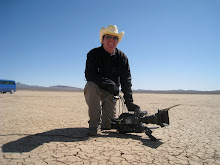


























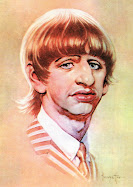






















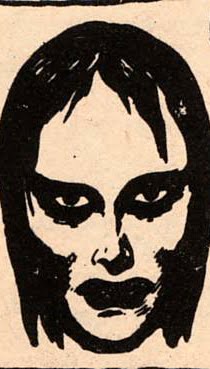









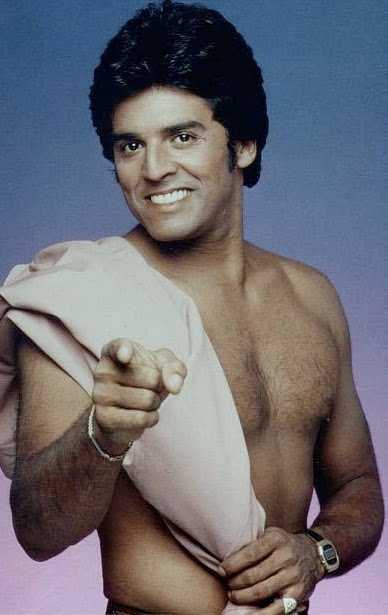









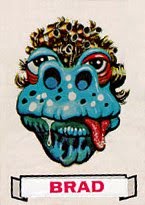























































No comments:
Post a Comment